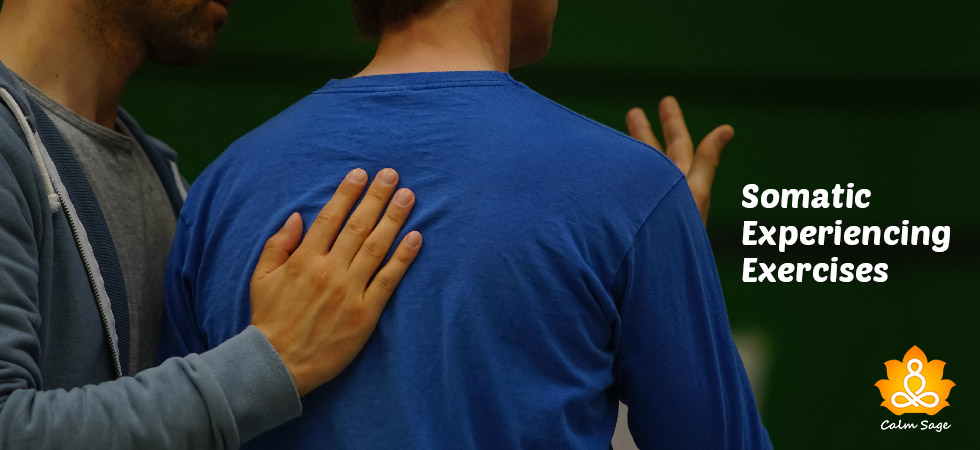Experiential Therapy For Mental Health: Techniques, Benefits & How It Helps

When I say therapy, what’s the first thing you can think of? Probably a room with a couch and an armchair? The therapist sitting with a clipboard and asking questions?
Well, you’re not far from the truth but therapy is more than just a conversation with a therapist. When we think therapy, more often than not we think of talk therapy, one of the forms of psychotherapy.
Psychotherapy is a vast field with many different techniques of therapy approaches for various mental health, emotional health, as well as spiritual health conditions.
One of these forms is experiential psychotherapy. As the name suggests, this form of psychotherapy relies on you engaging in certain activities and experiences to help in your healing process.
In this blog, we’ll read more about what is experiential therapy, experiential therapy techniques, how it can help, and its effectiveness.
What Kind Of Therapy Is Experiential Therapy?

Experiential therapy is the kind of psychotherapy that supports the use of tools, experiences, and activities that help you express your emotions or recreate past or present situations to better understand your concerns.
Experiential psychotherapy uses tools such as role-playing, drama therapy, music therapy, art therapy, pet therapy, or wilderness therapy to help in your healing.
This approach to psychotherapy emphasizes experiences and actions. When you engage in an action, you access the psychological factors you might have not accessed otherwise. Experiences and actions also push for a change in your life. They make you look at your situation from a different perspective and make you think differently.
What Are Experiential Therapy Techniques?
Experiential therapy uses expressive activities and tools to help you process your past experiences and heal. As you engage in these techniques, you begin to identify emotions from your past experiences and understand how those are impacting your present.
This therapy approach is client-centered and the activities are based on your preferences.
There are various experiential therapy techniques and types but some common techniques can be:
1. Art Therapy

Art therapy involves activities such as drawing, painting, sculpting, etc to help you express and work through your difficult emotions.
Examples of art therapy can be:
- Painting or using colors to express emotions
- Creating an art journal
- Writing a postcard
- Sculpting or clay modeling
- Creating a collage
2. Music Therapy

Music therapy is another common type of experiential therapy that allows you to engage in activities such as singing or listening to music to strengthen communication skills, express difficult emotions, and center your mind.
Examples of music therapy can be:
- Listening to soothing tunes
- Discussing feelings brought on by music
- Creating music
- Playing an instrument
- Writing songs to express emotions
3. Experiential Family Therapy

This technique of experiential therapy is a type of group therapy approach where family members can interact with each other while engaging in an activity. This kind of technique helps the therapist understand the family dynamic and helps improve family engagement and participation.
Examples of experiential family therapy can be:
- Family members sharing memories
- Storytelling to communicate feelings
- Members writing complaints, anonymously
4. Psychodrama

Also known as drama therapy, this technique is the most common approach to experiential therapy. It involves re-creating emotional situations in a safe space. This technique helps in releasing negative and repressed emotions.
Examples of drama therapy can be:
- Role-playing
- Mirroring
- Soliloquy
5. Other Approaches

Other common approaches of experiential therapy can include animal-assisted therapy, wilderness therapy, adventure therapy, etc. Pet therapy involves interacting with animals and caring for them.
Wilderness therapy involves interacting surrounded by nature to encourage self-reflection.
Adventure therapy includes activities such as hiking, camping, or biking to help you in problem-solving or managing situations that may trigger your stressors.
What Is Experiential Therapy Used For?
Experiential therapy can be used to treat various mental health conditions including:
- Anger
- Anxiety
- ADHD (Attention Deficit Hyperactivity Disorder)
- Compulsive Disorders
- Depression
- Eating Disorder
- Grief & Loss
- Mood Disorders
- Relationship & Family Issues
- Phobias
- Stress
- Addiction
- Trauma & PTSD
What Are The Benefits Of Experiential Therapy?

There are many benefits of experiential therapy such as:
- Release Negative Emotions: Experiential psychotherapy helps you re-create emotional or traumatic experiences. This helps in understanding your reaction to the experience and release any repressed emotions that may be stalling your healing.
- Processing Emotions: This type of psychotherapy helps you to delve deeper into your emotional understanding and process all the emotions and feelings that you may have suppressed.
- Confronting Thoughts: We tend to avoid thoughts and places related to a traumatic situation but with experiential therapy, you learn how to confront those thoughts and feelings and move on.
- Changes Perspective: One of the approaches to experiential therapy, psychodrama, allows you to change your perspective and see the situation from others’ point of view, promoting acceptance and forgiveness.
- Creative Expression Of Emotions: Since experiential psychotherapy uses expressive arts such as music therapy, art therapy, etc, to release emotions and understand feelings, it allows you to be creative with your emotional expression.
Should You Try Experiential Therapy?

Experiential therapy may not be effective or helpful for everyone. Especially if you’re struggling with cognitive impairment, physical impairment, or psychosis. Experiential therapy is quite intense so it’s recommended you consult with a professional before choosing this approach.
If you’re considering experiential therapy, then it is recommended you speak to a licensed and trained therapist especially when considering art therapy or animal-assisted therapy.
Keep in mind, some approaches to experiential therapy can be intense, so you must work with someone you can trust and have a strong therapeutic rapport with.
Online-Therapy
Best at providing Cognitive-behavioral therapy

- Excellent qualified, certified, and trained therapists
- Unlimited communication with the therapist via video, audio, and chat
- Offers a therapy toolbox with access to worksheets, journals, and more
- Affordable weekly subscription plans to pick from
Any Major Limitations?
While experiential therapy offers alternative practices to self-reflection and emotional processing, there is some limitation to this psychotherapy too.
One of the major limitations is that experiential therapy may fail to connect the activities or interventions with your issues. Here, classic psychotherapy or talk therapy can help. Again, it is recommended you consult a professional mental health counselor before deciding on a therapy approach.
Writer’s Thoughts
Experiential psychotherapy is a hands-on and intense therapy approach that uses expressive tools, experiences, and activities to help you heal and process your repressed emotions. It not only helps you process your emotions, gives you a different perspective, but also helps promote creative expression of your thoughts and feelings.
I hope this article helped you understand what is experiential therapy, its techniques, and its benefits. For more, you can always write on info@calmsage.com or DM us on social media.
Found this article helpful? Let us know in the comments below!
Take Care!




















